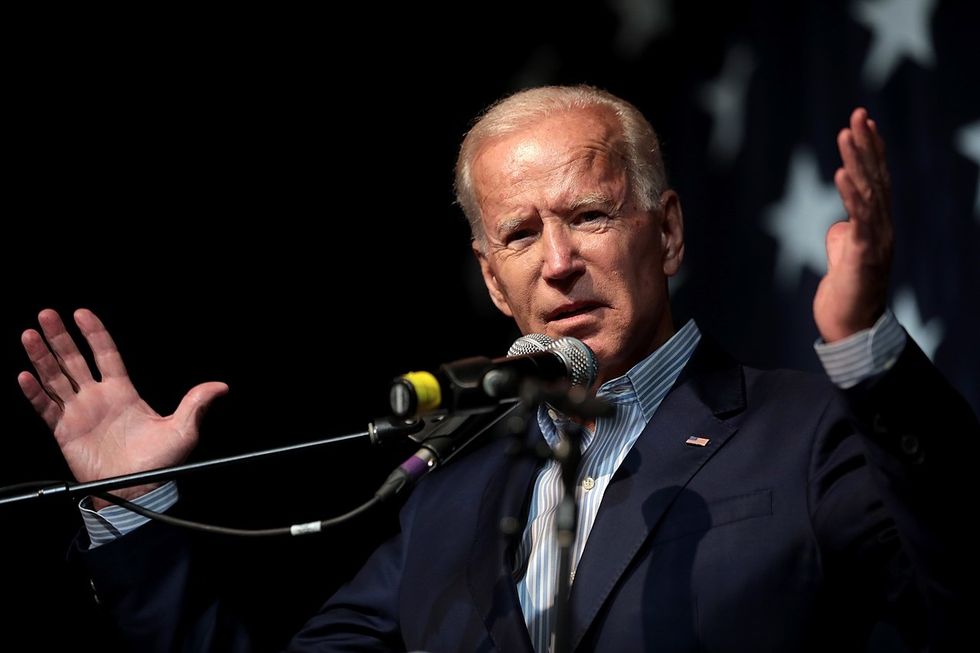Let me start by saying that no, I don't believe that most of humanity is bad. In fact, people often describe me as optimistic and say I look on the bright side of things. But after some of the horrific events that have taken place in our country lately, I think Joe Biden may be on to something when he said that 10 to 15 percent of Americans aren't very good people.
It's important not to take what Biden is saying out of context. If you listen to what he says, it actually makes a lot of sense.
He says:
"My view is that we will have to address these issues straight on, and the words a president says matter. When a president stands up and divides people all the time, you're going to get the worst of us to come out, the worst in us all to come out. Do we really think this is as good as we can be as a nation? I don't think the vast majority of people think that. There are probably anywhere from 10 to 15 percent of the people out there, they're just not very good people. But that's not who we are. The vast majority of people are decent. We have to appeal to that and we have to unite people, bring them together."
Biden isn't saying America stinks and that we're all horrible, inhumane beings. He's challenging us as a nation, asking if this is really all we can do.
Is this really the best America has to offer?
I'd like to agree with our former Vice President and say it's not the best we have to offer. I know we can do better.
We have to call out our leaders, first, though, when they exhibit behavior or spew words that are less than inclusive or welcoming.
We have to call out our president when he invokes George Floyd's name to promote an uptick in the economy.
No, Mr. President, I don't think George Floyd is thrilled the economy is starting to rebound. It's not "a great day for him" as you called it.
It's not a great day for Breonna Taylor, either, as she would have turned 27 today.
It's not a great day for anyone who has felt the wrath of the racism, classism, and just pure division of this country. We claim to be an open-minded country, but so many people have been hurt by this country and its ways.
Just because you don't experience the hurt, Mr. President, doesn't mean it's not there.
And I'd like to believe that's what Biden meant by his comment. It's not that people are horrible, but for those who fail to recognize or acknowledge what is going on in the world around them just because it isn't directly impacting them, they're contributing to the problems we are facing in 21st-century America.
By shoving something off and failing to do anything about it because it "doesn't impact you," you're actually taking the side of the oppressor, whether you realize it or not.
See, there's an old saying that goes something like this: if an elephant steps on the tail of a mouse, and you decide to remain neutral, the mouse isn't going to appreciate it. Basically, by not stepping up and telling the elephant to get off of the mouse's tail, you're continuing to allow the mouse to be in pain and be hurt.
It may not actually hurt you personally if the elephant remains on the mouse's tail, but it does hurt the mouse.
Similarly, you may not be directly impacted by the divides and the way we treat minorities in this country, but if you don't speak up about the injustices, you're a bystander allowing it to happen, allowing people to continue to be viewed as less than human.
That's the heart of what Biden is getting at with his comment. We need to demand better of our leaders and of our people who follow those leaders, we need to stand up when they say something that divides our nation, we need to call them out.
Biden is saying that quite simply: silence is no longer an option.
People's lives, people's freedoms, people's very humanity are on the line, and that's not something to mess with... ever. We're all a part of the human race, we all are human by our very nature of just being alive. When you endorse or even remain silent about divisive rhetoric, you become a part of the 10 to 15 percent, whether you see it or not.
I know America can be a nation of inclusivity, but in order to get there, we need to use our voices and use them now.
This isn't an option anymore, it's a demand.



















